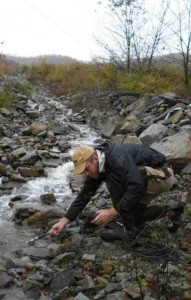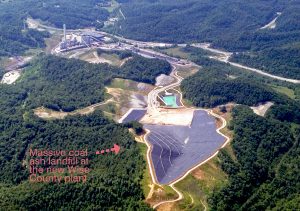By Erin Burks
Red, White and Water intern, Summer 2012
Summer is coming to a close, as is my internship with AppVoices. Today is my last day. Two and a half months of my time with this organization has allowed me to travel, to write, to organize, and to learn.
The most important aspect of any internship is to learn from those around you. I’ve learned so much about the atrocities that mountaintop removal presents to communities and experienced little of it myself.
Citizens in mining communities of WV and KY wake up everyday with coal ash dust speckling their homes, black lung disease and cancers slowly killing off family members.
I wake up every morning, breathing clean air, removed from the realities of coal mining, but connected all the while.
Most Americans are able to flick a switch for electricity any time they need it. It’s so easy that most people don’t think about it–where this power source comes from and what the human cost is.

At the Alliance for Appalachia’s annual Week in Washington, I drew closer to the cause and heard firsthand accounts of sickness and unemployment in the coal-bearing regions of Appalachia. I heard anger and deep sadness in the voices of those who spoke about what mountaintop removal mining had done to their lives. Until recent years, I had not begun to think of the consequences of this energy system on which we so heavily rely.
Unfortunately, many people in coal country USA have been persuaded to believe their livelihood depends on coal usage. Coal mining has provided jobs for many generations, but with the advent of surface mining, coal companies moved in a more harmful direction. Mountaintop removal coal mining strips people of their jobs and gives the job of mining coal to machinery.
Coal companies are BIG. They have big money and a big voice. Their influence carries over in Congress and in the minds of many citizens.
To argue that coal is the only fuel that will keep America running, as coal companies do, is an insult to our ingenuity and capability as a species. Humans by nature are smart and adaptable creatures; surely we can adapt to a changing energy landscape. We can phase out the dirty resources that make our people and environment sick, and we can use the power of people and their voices to do so.



 Much of the financial infrastructure for companies operating Appalachian surface mines
Much of the financial infrastructure for companies operating Appalachian surface mines 





